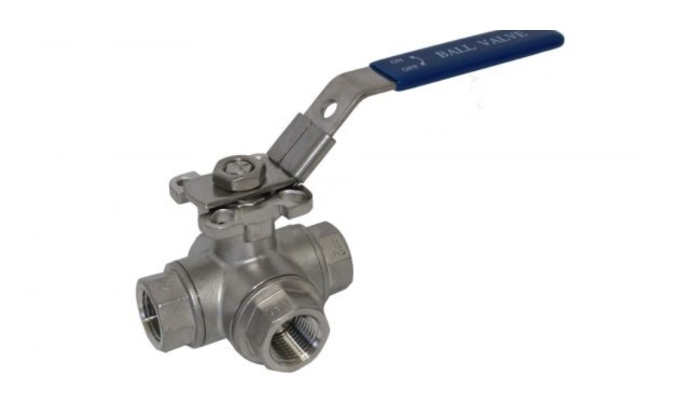In today’s rapidly evolving business landscape, organizations are increasingly turning to integrated systems to streamline operations, enhance productivity, and maintain a competitive edge. One of the most effective ways to achieve these goals is through the implementation of SAP (Systems, Applications, and Products in Data Processing) solutions. SAP implementation projects are critical for businesses looking to optimize their processes and leverage data for informed decision-making. This blog explores the importance of SAP implementation projects and how they can transform an organization’s operations.
Implementing SAP is not merely about adopting new software; it represents a strategic initiative that aligns technology with business objectives. By integrating various functions such as finance, supply chain, human resources, and customer relationship management into a single platform, organizations can achieve greater efficiency and visibility across their operations. As we delve into the key reasons why a SAP implementation project is vital for business success, it becomes evident that investing in this technology is essential for any organization aiming to thrive in a competitive market.
- Streamlined Business Processes
One of the primary benefits of implementing SAP is the streamlining of business processes across an organization. By integrating various functions such as finance, supply chain, human resources, and customer relationship management into a single, centralized system, SAP eliminates redundancies and significantly improves workflow efficiency.
This integration enables seamless communication between departments, reducing delays and enhancing collaboration. For instance, when sales data is automatically updated in real-time within the finance department, it allows for quicker invoicing and improved cash flow management. The centralization of data on a unified platform also eliminates the need for multiple data entries, reducing the risk of inconsistencies.
Moreover, SAP’s automation capabilities help streamline repetitive, time-consuming tasks that are prone to human error. By automating processes like inventory management, financial reporting, and customer support, SAP frees up employees to focus on more value-added activities, ultimately boosting productivity.
The streamlining of business processes is a key advantage of implementing SAP. By integrating functions, automating tasks, and centralizing data, SAP helps organizations eliminate inefficiencies, enhance collaboration, and improve overall operational performance.
- Improved Data Management
SAP systems provide a centralized database that enhances data management across the organization. This centralization ensures that all departments work with the same information, reducing discrepancies and errors associated with manual data entry. With accurate and up-to-date data readily available, businesses can make informed decisions based on reliable insights. Additionally, advanced reporting tools within SAP enable organizations to generate comprehensive reports quickly, further enhancing data-driven decision-making.
- Enhanced Customer Experience
Implementing SAP can significantly improve customer service by providing employees with access to relevant customer information at their fingertips. With integrated CRM functionalities, organizations can track customer interactions, preferences, and purchase history more effectively. This level of insight allows businesses to tailor their offerings and respond promptly to customer inquiries or issues, ultimately leading to higher customer satisfaction and loyalty.
- Increased Efficiency and Productivity
SAP implementation projects often lead to increased efficiency and productivity within organizations. By automating routine tasks such as order processing, inventory management, and financial reporting, employees can focus on more strategic activities that drive growth. The reduction in manual work not only minimizes errors but also accelerates processes, enabling businesses to respond faster to market demands.
- Cost Reduction
While the initial investment in SAP implementation may seem substantial, the long-term cost savings can be significant. By optimizing processes and improving operational efficiencies, organizations can reduce overhead costs associated with labor and resources. Moreover, better inventory management through SAP helps minimize excess stock and associated carrying costs, leading to improved cash flow.
- Scalability for Future Growth
SAP systems are designed with scalability in mind, allowing organizations to adapt as they grow. Whether expanding into new markets or introducing new product lines, SAP provides the flexibility needed to accommodate changing business needs without requiring a complete system overhaul. This scalability ensures that businesses can continue leveraging their investment in SAP as they evolve.
- Regulatory Compliance
In an era of increasing regulatory scrutiny across industries, implementing an SAP system can help organizations maintain compliance with various legal requirements more effectively. SAP solutions come equipped with built-in compliance features that facilitate adherence to industry regulations regarding data protection, financial reporting, and operational practices. By automating compliance processes and maintaining accurate records within the system, businesses can mitigate risks associated with non-compliance.
- Better Forecasting and Planning
SAP’s advanced analytics capabilities enable organizations to conduct accurate forecasting and planning based on historical data trends and real-time insights. With access to comprehensive data analysis tools, businesses can anticipate market changes and adjust their strategies accordingly. This proactive approach enhances overall business agility and positions organizations for success in dynamic environments.
- Improved Collaboration Across Departments
SAP implementation fosters better collaboration among departments by breaking down silos that often hinder effective communication. With a unified platform where all teams can access shared information, employees are encouraged to work together towards common goals. This collaborative environment not only boosts morale but also drives innovation as diverse perspectives come together to solve challenges.
- Long-Term Strategic Advantage
Finally, investing in an SAP implementation project provides organizations with a long-term strategic advantage in their respective markets. By leveraging integrated technology that supports efficient operations and informed decision-making, businesses can position themselves as leaders within their industries. The ability to adapt quickly to changes while maintaining high levels of performance sets organizations apart from competitors who may still rely on fragmented systems or outdated processes.
In conclusion, SAP implementation projects are crucial for organizations seeking to enhance their operational efficiency and drive sustainable growth in today’s competitive landscape. From streamlining business processes and improving data management to enhancing customer experiences and ensuring regulatory compliance, the benefits of implementing SAP solutions are extensive.
By investing in an SAP implementation project plan, businesses position themselves for long-term success while gaining access to powerful tools that facilitate informed decision-making and strategic planning. As companies navigate the complexities of modern business environments, embracing integrated technology like SAP will undoubtedly play a pivotal role in achieving their objectives and maintaining a competitive edge in the market.

